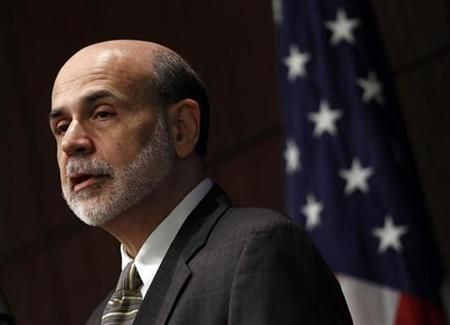Progress towards full employment and price stability “disappointingly slow”: FOMC

While certain members of the FOMC were increasingly confident of an economic recovery in the U.S., they found progress towards achieving maximum employment and price stability to be “disappointingly slow,” according to the minutes of the past Fed board policy meeting in mid-December.
FOMC members also fretted that progress on these fronts were “likely to remain modest, with unemployment and inflation deviating from the Committee's objectives for some time.”
Consequently, all FOMC members (save one) agreed to continue expanding the policymaking body’s purchases of long-term securities “in order to promote a stronger pace of economic recovery and to help ensure that inflation, over time, is at levels consistent with the Committee's mandate.”
The board also agreed to keep buying up to $600-billion on such securities through the middle of 2011.
“While the economic outlook was seen as improving, members generally felt that the change in the outlook was not sufficient to warrant any adjustments to the asset-purchase program, and some noted that more time was needed to accumulate information on the economy before considering any adjustment,” read the minutes.
“Members emphasized that the pace and overall size of the purchase program would be contingent on economic and financial developments; however, some indicated that they had a fairly high threshold for making changes to the program.
Once again, Kansas City Fed President Thomas Hoenig dissented from the prevailing views and asserted that “in light of the improving economy, a continued high level of monetary accommodation would increase the risks of future economic and financial imbalances.”
The board voted to keep the fed funds rate unchanged at a range of 0 to 0.25 percent, while adding that such low rates would likely be warranted for an “extended period.”
Overall, in gauging the health of the economy, the FOMC determined that the recovery was advancing at a “moderate” rate, but that the unemployment rate remained “elevated.” Members also expressed concerns about the depressed housing market and tepid consumer spending.
Noting that yields on Treasuries started to rise sharply after the November Fed meeting, the FOMC defended its bond-buying program by citing that it probably kept yields from rising even further due to the lower expectations about the eventual size of the Fed’s asset purchase program.
Most analysts do not expect the Fed to start hiking rates until 2012.
© Copyright IBTimes 2025. All rights reserved.




















